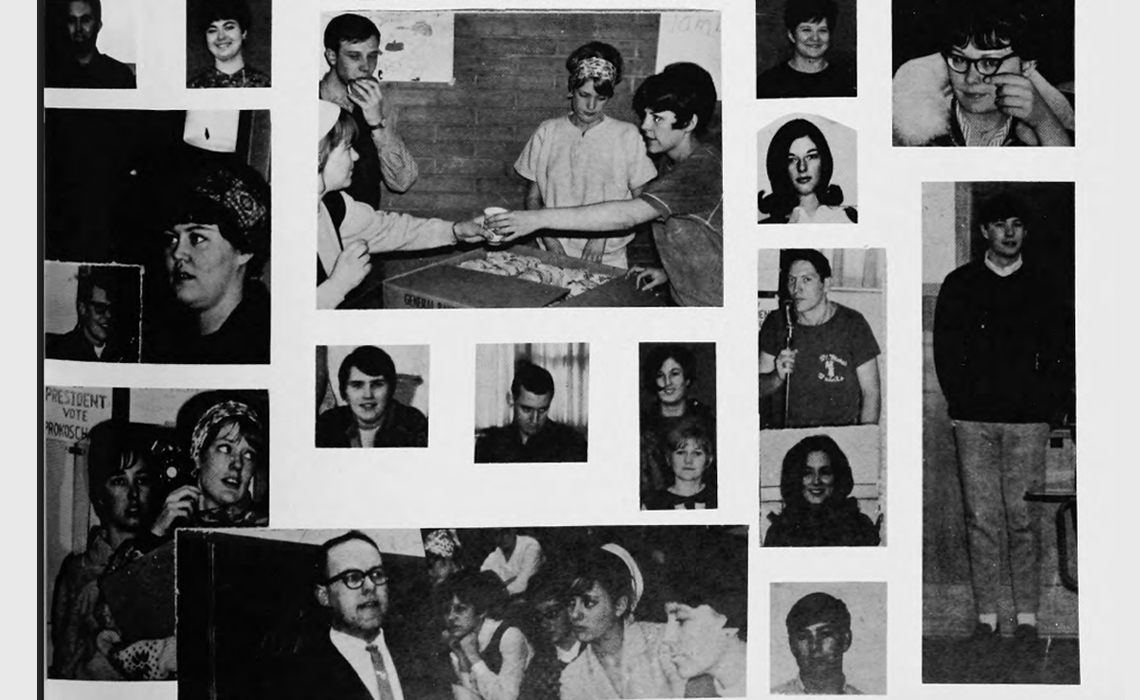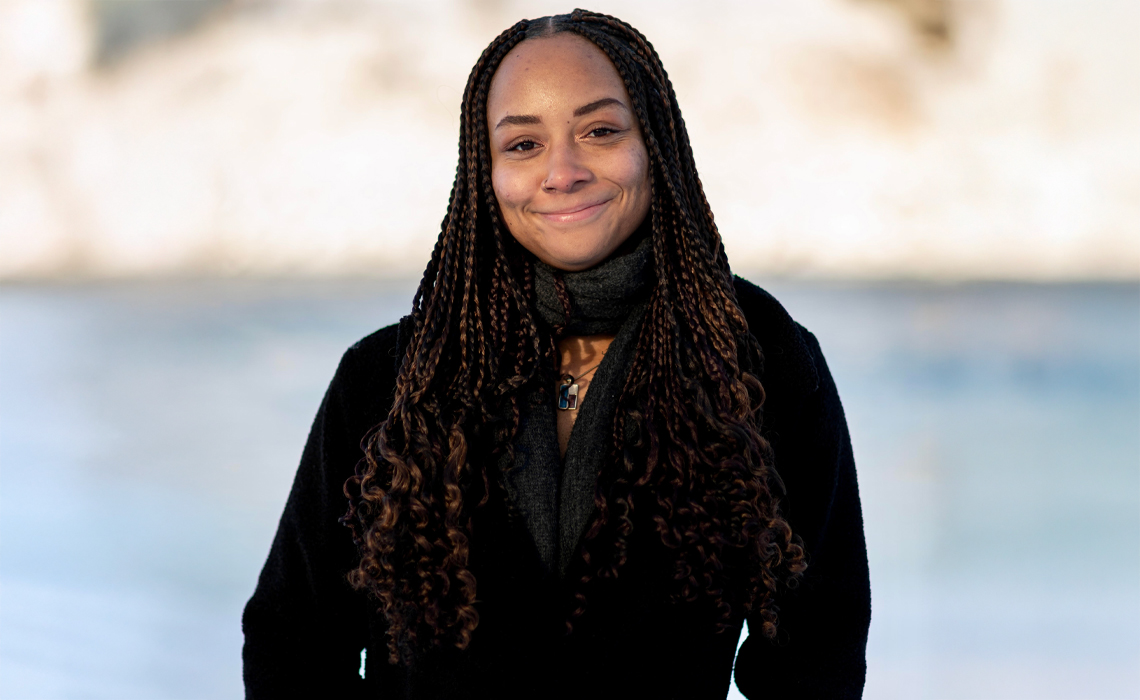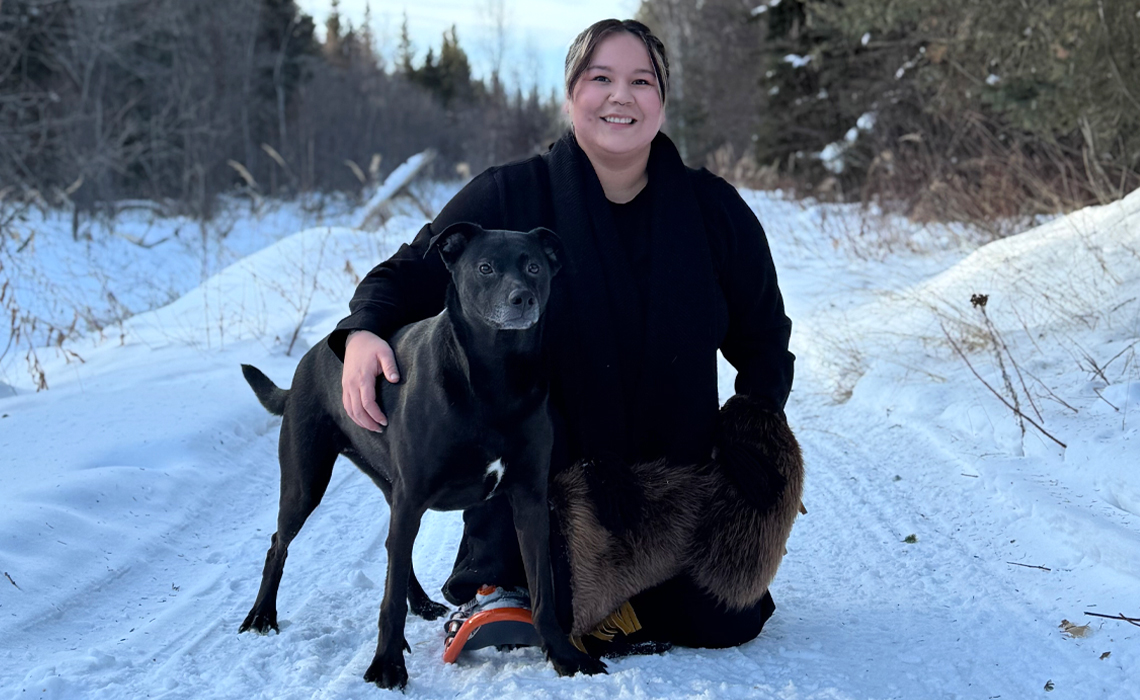Celebrating 65 years of social work

For 65 years, Mount Royal has been preparing social workers to support individuals and communities in need. What began in 1959 as the Community Service Training Department emerged in response to a growing demand for skilled professionals to advocate for and assist vulnerable populations. By 1970, it had evolved into the Social Work Diploma, and today, the program offers both the two-year diploma and a four-year Bachelor of Social Work.
But beyond the curriculum, the true legacy of Mount Royal’s social work program is found in its people — the students, alumni and faculty — who dedicate their lives to advocacy, support and building stronger communities.
A program built on passion and purpose
For Gina Adams, a Social Work Diploma alumna and now the practicum and advising coordinator, social work was never just a career. It was a calling.
“I loved helping my friends in high school, so I volunteered at the Distress Centre’s Teen Line. That experience sparked something in me,” she says. Adams’ career took her through child welfare agencies, social work in schools and ultimately back to Mount Royal, where she now mentors the next generation.
Having spent 17 years at Mount Royal, Adams watched the program’s growth first-hand, including seeing the college become a university in 2009 and the launch of the Bachelor of Social Work degree in 2021. Social work was also the first program at MRU to introduce an Indigenous entry stream, paving the way for others to follow.
Through it all, Adams says one thing has remained constant: its reputation. “Agencies call us asking for practicum students because they know our students are well prepared.”
With a minimum of 700 practicum hours and more than 100 partner agencies, MRU ensures students gain valuable, hands-on experience. “Practicum is the highlight of a student’s education,” Adams says. “We see their confidence grow and watch them discover where they want — or don’t want — to be in the field.”
Adams believes the program’s supportive culture is what sets it apart. Faculty and staff work closely with students to match them with the right placements and help them navigate their careers.
“Of these 65 years, I’ve been involved for nearly a third, as a student or an employee,” she says. “I’ve watched us graduate so many strong and amazing social workers, and I’ve had the privilege of playing even a small role in their journey.”
Transformative learning through experience
Lydia Mbikayi, in her fourth year of the Bachelor of Social Work, says her education has been about more than academics. “I knew I wanted to make a difference, but I didn’t realize how much I would grow personally,” she reflects, adding that the practical, real-world experience has helped her the most. “Simulations provide a safe space to make mistakes, discover areas for growth and practice clinical social work skills.”
Mbikayi’s practicum placement at Sagesse, a non-profit organization, has been particularly transformative. “The most valuable lesson I learned there was to embrace the messiness,” she says. “It gave me the confidence to navigate uncertainty and to not have all the answers.”

Choosing MRU was an easy decision for Mbikayi, who had already completed a Bachelor of Sociology with a minor in Women and Gender Studies at the university. “The small class sizes and the ability to connect with professors outside of class made MRU feel like a second home,” she says.
Mbikayi’s advice for future social workers? “It’s important to stay open to different perspectives and challenge yourself to step outside your comfort zone. And remember, self-care looks different for everyone — take care of yourself to show up for others. It’s a journey, not a race.”
“Social work helps us to help ourselves, to show up with compassion and empathy and humanize others. That’s what makes our communities brighter,” she adds.
Rooted in community
Raised in the Northwest Territories, Skye Boucher noticed a gap in the helping professions. Indigenous youth often lacked support from those who truly understood their experiences. "I saw the lack of Indigenous northern people in helping positions, and I wanted to help fill that gap," she says.
After starting her studies in Victoria, B.C., but wanting to be closer to home, Boucher chose MRU. She completed her diploma in 2022 and earned her Bachelor of Social Work in 2024.

Boucher says she valued the Iniskim Centre’s support, particularly the workshops, mentorship programs and writing support. “As an Indigenous student, it can be really tough trying to navigate a colonial institution, and utilizing the resources available really helped me on my social work journey,” she shares.
Today, as a foster-care coordinator in Hay River, Boucher is doing exactly what she set out to do: serving her community.
Her lived experience continues to shape her practice. “I want to be who I needed when I was younger,” she says. Working within her own community, she sees firsthand the importance of Indigenous representation in social work. “My knowledge of being from this area and the people within it has tremendously helped my practice. With some clients, there is that rapport already there, and they trust I will do my best to work within a system.”
Looking forward
As MRU celebrates 65 years of social work education, the program stands as a testament to the power of education to change lives. Not just for students, but for the countless individuals and communities they go on to serve. From its early days as a two-year diploma to the launch of the Bachelor of Social Work, the program has continuously adapted to the needs of the field, always guided by principles of compassion, equity and justice.
With a strong foundation and a forward-looking vision, MRU’s social-work program is poised to continue shaping the next generation of social workers ensuring that, for decades to come, graduates leave ready to make a difference.
"We are incredibly proud of these two exceptional degree and diploma offerings at MRU," says Dr. Stephen Price, PhD, dean of the Faculty of Health, Community and Education. "The outstanding calibre of our dedicated faculty has helped produce some of the finest social-work practitioners in the field in the pursuit of a more equitable and just society."

